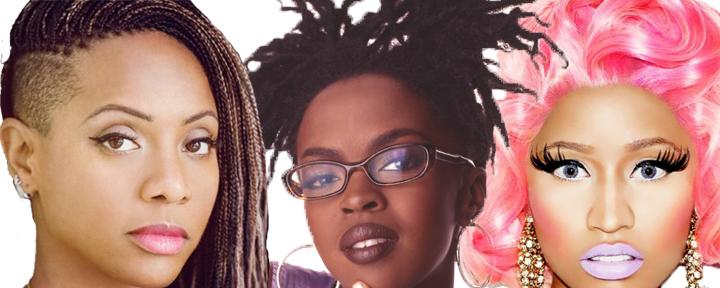Trick. Babygirl. Bitch. Boo. Girl. Ho. Thot. Bae.
These are just a few names men call women in hip-hop and rap music.
No doubt there is an issue with misogyny in rap lyrics. Within the realms of hip-hop and rap, women are not given the same respect and rarely become as successful or famous as male artists.
However, the industry owes a great deal of its culture to the women who were brave enough to make a name for themselves in a male dominated scene full of macho and bravado tendencies. In the theme of Women’s History month, let’s take a look at the influence women have on rap and hip-hop.
Ever heard of a group called Blondie? Well, with the help of the American rock band’s song “Rapture,” lead singer Debbie Harry rhymed a verse shouting out Fab Five Freddy and Grandmaster Flash, placing their careers, along with the hip-hop scene, into the mainstream of rock and pop culture.
In 1981, “Rapture” was the first rap music video ever to be broadcasted on MTV. Keep in mind the first rap record, “Rapper’s Delight” was only released three years before, in 1979.
From the start of hip-hop and rap, women have helped shape the music and influenced its culture. With early pioneers like Roxanne Shante and MC Lyte, female artists began to make their own footprint in the hip-hop and rap scene.
In 1988 MC Lyte became the first female rapper to release a complete album. That same year, Queen Latifah stepped into the rap and hip-hop scene becoming one of the most successful female rappers of all time.
As more and more female artists began to emerge in the 90s the portrayal of women in rap and hip-hop changed to a more raw, misogynistic style as gangsta rap stepped in the limelight. However, female artists like Lil’ Kim and later Missy Elliot embraced this change to take their lyrics to the next level as well. As these artists focused their lyrics on gritty, sexual and explicit subjects, they grabbed the attention of the mainstream, changing the wave of hip-hop as it entered the early 2000s.
As female artists began to sexualize themselves alongside men in rap and hip-hop, certain artists began to create a more conscious sound. The most famous and successful one is Ms. Lauryn Hill who represents the strong African-American woman through her music.
Today, female artists have stepped back from that. Besides Nicki Minaj, whose lyrics are not as misogynistic as Missy Elliot or Lil’ Kim, female rappers have strayed away from sex appeal and turned more “hard” as portrayed by artists such as Rihanna.
“It’s a bad thing to be selling sex. Nowadays, it seems like it’s looked down upon. It’s like they expect female rappers to be more pop, and I don’t want to be pop so hopefully me sticking to that whole thing and not going down that route will be the reason why I make it further,” said Paige Raymond, former SRJC student-turned-rapper who has worked with Bay Area artists such as Too Short.
As Raymond hopes to stick to her own sound, she continues to pave the way for female artist who are trying to make it in the hip-hop industry in their own way, just like many before her.
Along with Raymond trying to find her way, more female MCs are coming back into the rap and hip-hop game. In 2016, a mix of female rappers put out billboard songs such as Nicki Minaj, Young M.a., Kamaiyah, Remy Ma and Kodie Shane.
All these recent female rappers have taken a more dominant approach with their style and lyrics. As these young artists try to make their mark in a male dominated industry they must fight harder for respect as the male ego tests them in everything they produce.
“With a woman, they want to figure out what you’re about, and see if you can rap. You have to prove yourself all the time, it’s annoying and I can’t stand it,” said Raymond. “I’ve been hit up by so many people higher up in the industry and I don’t know if they really want to work with me or what their intentions are.”
Unfortunately for women, the hip-hop industry is like any other workplace where women have to fight for equal opportunity, respect and social justice. But without these strong female pioneers in the hip-hop and rap industry, the culture and the music would never have been able to reach forms that it has today.
So next time you hear a new female artist, give her a chance before casting her into a stereotype of rapper, created by the male ego.




